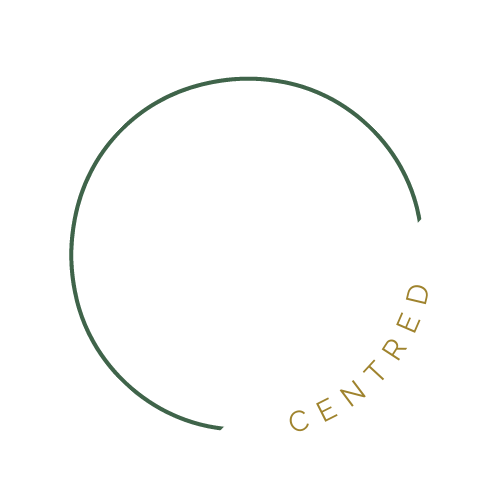If you had told me in my twenties that I’d one day dedicate my life to fasting—going without food for hours, days, or even weeks—I would have burst out laughing. At that time, my priorities were late nights out with my friends, shots of Jägermeister chased with Red Bull, and making as much money as possible. Health wasn’t even on my radar – it felt like another thing to rebel against. My body seemed resilient—until it wasn’t.
It took years of suffering, a devastating loss, and the failure of conventional medicine before I discovered the healing power that had always been within me. Within all of us: the body’s innate ability to repair itself.Subscribed
A childhood shaped by health and trauma
Like many, my childhood had its share of struggles. I faced adversity early on—stress that left a lasting mark on my nervous system. I won’t go into the specifics of my early adverse experiences, but the impact of childhood trauma is well-documented and affects us in ways we often don’t realise. Trauma isn’t just emotional; it’s physiological. The body remembers, storing these experiences deep within, subtly influencing our health in various ways. The nervous system, constantly primed for stress, shapes our immune responses, gut health, and even our ability to regulate inflammation. At the time, I had no idea how much my past and additional traumas would later impact my health.
Ironically, I grew up in a home where food was seen as medicine long before that idea gained mainstream recognition. My mother fed us organic food before “organic” became a marketing term. I still remember the day she threw out all the sugary cereals, artificially sweetened juices, and anything with food colourings, replacing them with whole foods. Processed junk was never an option in our house, and when we were unwell, we turned to natural remedies. Looking back, I realise she had an intuitive understanding of the body’s ability to heal when provided with the right conditions.
But when she was diagnosed with cancer, everything changed. The weight of medical authority overshadowed her instincts. Doctors insisted the only viable options were chemotherapy, radiation, and surgery, and everyone around her reinforced that belief because it was the accepted narrative. Despite her initial resistance, she followed their advice.
Even then, she questioned. She bought and read books like Bad Pharma, explored how emotions impact disease, and researched the power of thought. I would find these books lying around the house and flick through them, fascinated by people who dared to challenge the mainstream approach to health. Those sparks of curiosity would later grow into my own journey of questioning everything I had been taught about health. What my mother didn’t realise, and what I would later come to understand, was how metabolic health plays a fundamental role in disease. Cancer isn’t just a genetic lottery—it’s closely tied to metabolic dysfunction, insulin resistance, and mitochondrial health. And fasting? It impacts all of these.
Losing my mother and the power of fasting
For five years, I watched my mother fight. The treatments ravaged her body, yet the cancer ebbed and flowed. One moment, we were told to say our goodbyes, the next, the tumours were shrinking. A month before my 21st birthday, doctors told her she had three months to live and that there was nothing more they could do. She was sent to hospice care, and in a desperate attempt to see my youngest brother finish school, she tried something radical: a 30-day water fast.
What happened next defied everything we had been told. The tumour in her stomach—so large it made her look nine months pregnant—shrank enough for surgery. Her symptoms improved, and she went into remission. For those next years, we had hope.
What shocked me most was the reaction of her doctors. They dismissed the tumour shrinkage during fasting as “unexplainable” and refused to discuss or understand it. That moment stayed with me. If something didn’t fit their paradigm, they ignored it. This was my first realisation that medicine doesn’t always seek truth—it often seeks to reinforce what it already believes. But that’s the thing—medicine isn’t static. Science evolves. Today, we understand that fasting activates autophagy, optimises mitochondrial function, and reduces inflammation—key factors in disease reversal.
Then the cancer returned, more aggressively than before. This time, she didn’t have the chance to fast again. Her body was too weak from years of chemotherapy and radiation. And my brother had just completed his final exams. She often said to me that it wasn’t the cancer that would ultimately end her life—it was the medical treatments that harmed both healthy and diseased cells alike. The body requires balance, and it will constantly strive to restore homeostasis, regardless of the challenges.
Losing her at 23 shattered me. It broke my faith in conventional medicine but also planted the seed of a question: Could the body truly heal itself if given the right conditions? At the time, I wasn’t ready for that answer. Instead, I internalised the grief, which, if left unchecked, doesn’t just affect the mind—it impacts the body.
My unresolved emotions became the silent architect of my declining health.
A toxic escape in my twenties
Grief is strange. Some people face it head-on, while others, like me, drown it in distraction. My twenties were a blur of late nights, alcohol, and anything that numbed the pain. I wasn’t reckless—I held down great jobs, started a successful business, and maintained relationships—but my body was running on fumes.
What I didn’t realise at the time was that chronic stress, unprocessed trauma, and poor lifestyle choices were creating the perfect storm for disease. I thought I was fine, I thought I was functioning. But my body was keeping the proverbial score. When we suppress our emotions, they don’t disappear; they manifest in our gut, in our hormones, in our immune system’s ability to function properly.
And then, it all caught up with me.
Chronic fatigue, Lyme disease, and the search for answers
By 2009, I was barely functioning. What started as exhaustion spiralled into full-blown debilitation. Some days, I couldn’t even get out of bed. I was dizzy, constantly faint, and my brain fog was so severe I couldn’t remember anything from meetings just hours before. Doctor after doctor ran tests before diagnosing me with chronic fatigue, Lyme disease, and coxsackie virus. They wanted to keep going.
Like my mother, I followed the treatments. I spent a fortune on supplements, protocols, and every conventional and alternative therapy I could find. Some helped temporarily, but nothing truly healed me. Then came the final straw—a doctor recommending a year-long course of antibiotics.
That was the moment I stopped listening. Deep down, I knew this wasn’t the path I wanted to go down. The idea of wrecking my gut for an entire year made no sense. That’s when I stopped chasing treatments and started searching for the root cause of my illness.
A doctor who changed everything
Two years into my health crisis, I found myself at a small clinic in Hermanus, Cape Town. The doctor there didn’t even glance at my stack of medical records. He wasn’t interested in my diagnosis and kept cutting me off when I tried to explain my symptoms.
“All disease begins in the gut,” he said, his voice calm but firm. “Heal the gut, and the body will reclaim its ability to restore balance, reversing years of dysfunction at the root level.”
This man, who would change the course of my health, was referring to the idea that many health issues stem from imbalances in the gut. The gut plays a vital role in the immune system, digestion, and even inflammation regulation. When it’s not functioning properly, it can lead to a range of problems, from digestive issues to immune dysfunction and mental health struggles, all due to the gut-brain axis.
It was the first time anyone had said something that resonated. Could it really be that simple? Instead of prescribing another treatment, he put me on a fast—a 12-day water fast.
Having never gone more than a few hours without eating, I had nothing else to do but surrender.
The fast that saved my life
The first few days were brutal. The headaches, the weakness, the discomfort of my body detoxing years of toxins, stored emotions, and poor choices. But by day six, something shifted. My mind cleared, my body felt lighter. It was as if something inside me had awoken.
I remember sitting in the sun, staring at the ocean, listening to Mumford & Sons on repeat and feeling a clarity and energy I hadn’t known in years. I cried. I walked. I let it all move through me. The real transformation, however, took place after the fast.
The refeeding process is crucial. The doctor warned me that if I returned to my old habits, I’d undo all the healing. He also advised me to get my body into a healthy state for at least a year before trying to have children. Instead of reverting to old patterns, I nourished my body with broths, vegetables, and healthy fats. Within weeks, I felt transformed. The fatigue, pain, and brain fog all lifted. It was like stepping into a new body, and the choices I was making became second nature, eliminating any need for willpower to do what was right for my body and health.
Fasting as a way of life
Over the years, I deepened my understanding of fasting and the body’s ability to heal. I learned about autophagy—the process by which the body breaks down damaged cells and regenerates new ones. I studied how fasting could reset the immune system, reduce inflammation, and improve mitochondrial function.
I began incorporating 10-day fasts into my life as a reset, using shorter fasts whenever I felt my energy dip or toxins build up. Fasting was no longer something I did out of desperation—it became a way of life, a way to stay in tune with my body instead of fighting against it.
Breaking the cycle of trauma for my children
Through fasting, I didn’t just heal physically—I healed mentally. The more I learned, the more I realised how deeply trauma, stress, and disease are interconnected. The nervous system, gut, immune system—they’re all linked.
As a woman, I couldn’t ignore one profound truth: we carry our traumas into our children.
Studies show that maternal stress, trauma, and even metabolic health can directly affect offspring through epigenetics. The stress hormones a mother experiences during pregnancy can alter a child’s stress response for life. Childhood adversity has also been linked to increased risk of autoimmune diseases, metabolic disorders, and mental health issues in adulthood (Yehuda & Lehrner, 2018).
That realisation changed everything for me. Healing wasn’t just for me—it was for my children. And my children’s children. If I could reduce my toxic load, regulate my nervous system, and truly heal, I could help prevent passing down the same burdens.
A journey of mind and body
Looking back, I see the path that led me here: my mother’s journey, my own health crisis, the years of searching for answers. It all pointed to one truth: the body is designed to heal. But healing requires removing interference—whether that’s toxic food, chronic stress, or unprocessed trauma.
Today, fasting is more than just a practice for me — it’s a calling. I teach others what I’ve learned, not just from research but from personal experience. And not only from my own experience, but through recognising how uniquely we are all created.

I know what it’s like to lose your health. I know what it’s like to feel hopeless.
And I know what it’s like to come out the other side.
And for that, I am eternally grateful.

